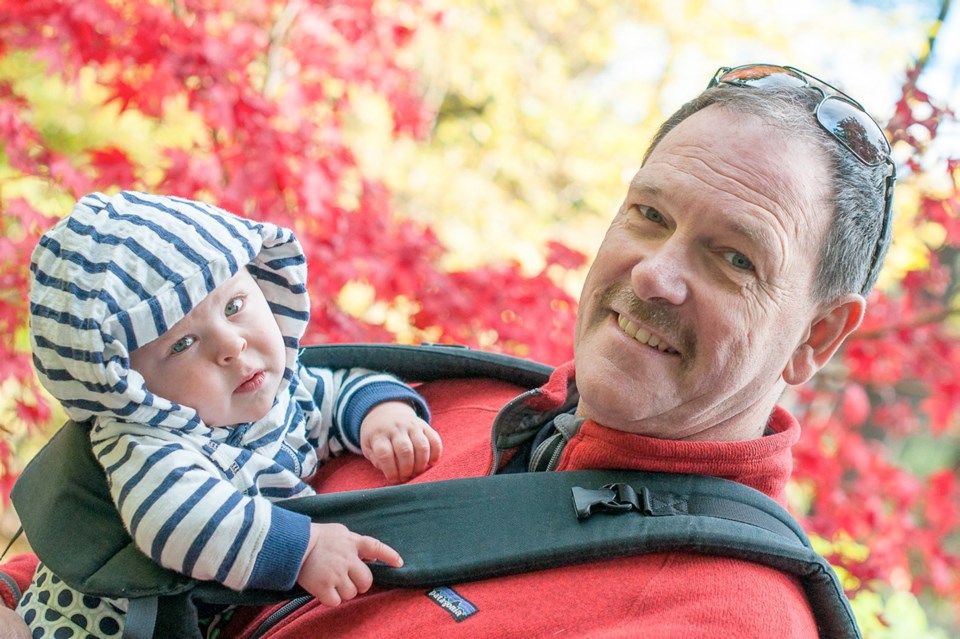The daughter of a Victoria cardiologist is making a moving plea asking people to talk about mental health more openly, after her father disappeared and was later found dead.
Kristy Wolfe, an Edmonton-based photographer, wrote a widely shared blog post about the recent death of her father, Dennis Morgan, inspired by the national Bell Let’s Talk Day on Wednesday. The campaign has raised more than $67 million for mental-health services.
In her blog, Wolfe said the cause of her father’s death is inconclusive, but the family knows he was struggling with work-related stress, which resulted in anxiety and depression. She asked others to reach out about mental health and support each other.
Quoting the speech she gave at her father’s memorial at Christ Church Cathedral on Jan. 17, Wolfe wrote: “I know we’re all feeling guilty. I’m sorry I didn’t call my dad more. I’m sorry I didn’t spend more time with my dad. I’m sorry I didn’t say I love you more. I’m sorry I lied about my friend jumping on the hood of our 4Runner in high school. ... But most of all I’m sorry we weren’t able to prevent this.
“We also know that Dad had so much he was looking forward to in life, and so many people he wanted to spend time with, that whatever happened it was not the way a healthy mind would handle the difficulties he was facing.”
Morgan’s family reported him missing on Jan. 7 after he did not show up for work or return to his Oak Bay home. Police and friends searched for Morgan, with only a gas purchase on his debit card in Mill Bay as a clue to his whereabouts.
On Jan. 10, a family friend spotted Morgan’s 2006 blue Land Rover at the Koksilah River Provincial Park. The next morning, RCMP and Cowichan Search and Rescue found Morgan’s body.
Morgan, 58, and Cheryl, his wife of 34 years, raised four children in Victoria. They settled here shortly after he finished medical school and cardiology training. Condolences on Morgan’s online obituary described him as a compassionate, caring doctor and colleague.
“He was a rare individual in his profession — not just incredibly knowledgeable and thorough in his care of patients, but also able to put them at ease, share humorous stories, and explain complex medical ideas in a way that was understandable and comforting to people who were worried and scared about their health,” wrote Frances Krug, whose mother was a patient.
“We consider ourselves privileged to have been under his care and know that many, many other of his patients feel the same.”
Wolfe said her post was one thing she could do about her father’s death and struggles. She said the family talked about whether to address the issue of mental illness and decided if they didn’t talk about it, who would?
“My dad didn’t want to burden friends and colleagues by asking for support. My dad didn’t know about or wasn’t using the resources that were available to him. My dad thought he could fix his anxiety and depression with medication alone. He couldn’t,” Wolfe wrote.
They will honour his legacy by caring for others, she said.
Wolfe lamented that her father did not get more time with his grandchildren and never met her second son.
Dr. Rami Rudnick, an Island Health psychiatrist and medical director for mental health and substance use services, said anyone concerned about their own mental health or a family member should speak to their physician or a walk-in clinic doctor about how to get help.
“Many family physicians have training in depression and mental illness but they also act as a referral service for the individual’s needs,” he said, noting there are a number of self-help and community supports in Victoria. These include the Vancouver Island Crisis Line and the new Island Health Booster Buddy app to monitor mental health.
Rudnick lauded organizations such as Citizens Counselling and the B.C. Schizophrenia Society, which offer counselling, peer support and help for families.
Hazel Meredith, executive director of the B.C. Schizophrenia Society, said the 10-week Strengthening Families Together program is one of their most popular and serves families dealing with a range of mental health issues from depression to complex mental illnesses.
“It’s successful because families support each other and share important information,” she said. “It’s one thing to know in your mind you’re not alone but another to meet people in a similar situation and know it in your heart.”
Patrick Corney, a psychologist at A.T. Malcolm and Associates in View Royal, said depression is one of the most-common psychological disorders they treat. “In depression, thinking can be overly negative and lead to unwanted, maladaptive behavourial patterns. It’s what some might term the downward spira.” Corney said fast-acting medication combined with long-term coping skills learned through cognitive behavourial therapy can be very effective.



